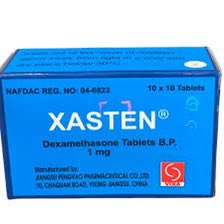Ghana Must Go, was a popular name given to the migration of illegal Migrants (mostly Ghanaians) from Nigeria following a Presidential executive order.
On January 17, 1983, the President of Nigeria, Shehu Shagari issued an executive order mandating immigrants without proper immigration documents to leave the country or they would be arrested according to the law.
The order was in alleged response to the religious disturbances that had engulfed parts of the country in 1980 (Kano 1980 Riots ) and 1981. Most of the immigrants were West Africans and mainly Ghanaians. Over 2 million men, women and children were affected. This is part of a recurring incident in West Africa, where immigrants are expelled for various reasons. Examples of such directives within West African countries include deportations from Ghana of Nigerians in 1954, Cote d’ivore deportation of Togolese, Dahomeyans and Nigerians in 1958, and deportation of aliens (mostly Nigerians) from Ghana in 1969.
Over 1 Million Ghanaians and other west Africans were affected by the order. These Migrants were mostly attracted to Nigeria because of the oil market of the 70’s, but in 1983 when the “Ghana Must Go” revolution started, the economy had weakened and was fast falling apart. It was also the election year.
The major route to Ghana was through the West passing through Benin and Togo. Once the migrants got to Benin, the way out was restricted. Those who had already made it to Benin were stuck in the port of Cotonou, the capital city of Benin, with hopes of getting a boat to Ghana. The problems they experienced didn’t end there, because due to an attempted coup the previous year, Ghana’s president Jerry Rawlings had closed the main land crossing with Togo to avoid the sudden arrival of over 1 Million people. Togo then also shut its borders with Benin.
The Ghanaian immigrants were stranded for weeks, thereafter the Ghanaian authority opened their borders causing Togo to also open theirs, for the Ghanaian to have access back home.
The relationship between Nigeria and Ghana has since been strengthened.
(Wikipedia)





